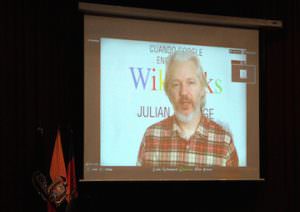Lonely Planet
News organizations continue to close bureaus around the world at a time when Americans seem to know less than ever about other cultures. It's hard to know why they hate us when we're not entirely sure who they are.WASHINGTON — In the goofy 1995 movie “Canadian Bacon,” a U.S. president beset by political problems brought on by the end of the Cold War cooks up the improbable idea of turning the American public against its amiable northern neighbor — better to have an enemy abroad than a restive electorate at home.
In the run-up to the “invasion” of Canada by an oddball band of provocateurs led by a Niagara Falls sheriff, the White House public-relations apparatus dreams up all sorts of reasons to, well, hate the Canadians. They are alleged to be excessively clean, annoyingly polite and as unnervingly bland as an Anne Murray song. And after all, the national security adviser points out, “When have you ever heard anyone say, ‘Honey, let’s stay in and order Canadian food?’ “
Well, when? For that matter, when do most Americans think of Canada as anything other than a frozen haven for winter sports, maple syrup and cheap prescription drugs?
The misconceptions and outright ignorance we have about Canada are surpassed only by our collective refusal to learn much about anywhere else in the world — unless, that is, Americans are at risk because of what many perceive as an incomprehensible animosity abroad. This American myopia is a trait that non-Americans find particularly grating.
And though it might not seem as urgent as repairing the tarnished image of our government abroad, it can’t help that American news organizations have been closing foreign bureaus and cutting their overseas staffs. The latest installment of this sad saga is word that The Washington Post, the last American newspaper to staff a full-time bureau in Canada, is leaving its Toronto office vacant indefinitely after its current correspondent, Doug Struck, ends his tour there this summer.
David Hoffman, the Post’s assistant managing editor for foreign news, says the move is not an abandonment of Canada coverage, but part of a reassessment of foreign news. He’s trying to change the Post’s emphasis from a model based on correspondents in fixed locations to one in which emerging themes that cross boundaries and cultures — migration, terrorism and climate change, for example — are stressed. “I’m trying to be a revolutionary and get people to think more globally,” Hoffman says. “We have to stop thinking of stories as taking place in a fixed place.”
This is diametrically different from the more traditional view that by immersing correspondents in a particular locale, their comprehension and instincts about the place are enriched — and so their reporting enhances readers’ understanding of it. This remains a consideration for him, Hoffman says, in places such as Beijing and Moscow.
Canada is no hot spot. But it is the United States’ largest trading partner. It is our chief supplier of energy, with oil reserves in Alberta estimated by some experts to be second only to those in Saudi Arabia. The U.S. and Canadian automobile industries are integrated. This is no small matter, given that the excruciating changes that have roiled the auto industry and its work force ripple through the U.S. manufacturing sector, if not our entire economy.
Maybe all this is beside the point for a nation more titillated by the raunchy coverage of Anna Nicole Smith’s death and the racist pratfalls of Don Imus. Despite a documented surge in interest in foreign news after the terrorist attacks of Sept. 11, 2001, we seem to have fallen back into a bad habit. We care — briefly — about the rest of the world when it experiences war, pestilence and natural disasters. And we’re especially attentive if Americans are dying in a military conflict or held hostage by ranting terrorists.
Several Canadian news organizations still maintain bureaus in the United States, typically in Washington and New York. But Tim Harper, the Toronto Star reporter who first wrote about the Post’s plans, says he’s the last of the Star’s correspondents here — though the paper is Canada’s largest: “Canadian newspapers are cutting back, just as American newspapers are.”
Mutual misunderstanding, Harper says, is typical. Most Americans he meets don’t realize that Canada is fighting alongside the U.S. in Afghanistan. His encounters with Americans still result in “weather cliches, hockey cliches.” Meanwhile, “there’s a sense in Canada that we know the U.S. because we get CNN and we watch your sports,” Harper says.
Perhaps this isn’t a gulf that 21st-century journalism can bridge. But that in itself is sobering. Because if this is the way we see our friends, it’s no wonder we have so many enemies.
Marie Cocco’s e-mail address is mariecocco(at symbol)washpost.com.
© 2007, Washington Post Writers Group
Your support matters…Independent journalism is under threat and overshadowed by heavily funded mainstream media.
You can help level the playing field. Become a member.
Your tax-deductible contribution keeps us digging beneath the headlines to give you thought-provoking, investigative reporting and analysis that unearths what's really happening- without compromise.
Give today to support our courageous, independent journalists.






You need to be a supporter to comment.
There are currently no responses to this article.
Be the first to respond.